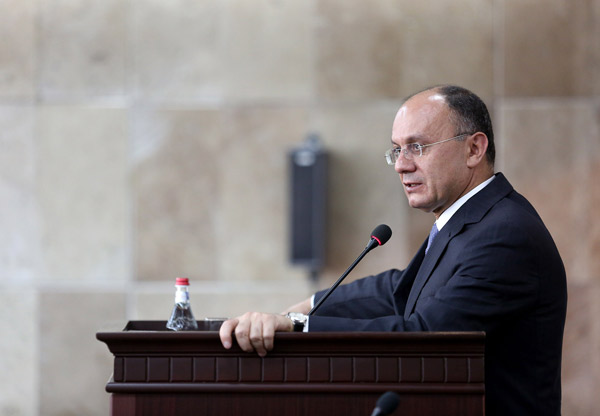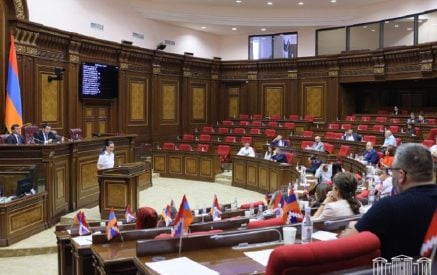To be honest, I would not want Seyran Ohanyan to become a political figure. He would be better to remain as a military servant. One can serve not only in the position of a minister. His services are invaluable, certainly, there were and are many drawbacks in the army. As to what kind of political figure Seyran Ohanyan will be, I do not know. Whether the adventurous people will not use his name for their own “not noble” goals, it is hard for me to say. But I would like to talk about other things now.
As soon as one enrolls and returns to the politics, creates an alliance and expresses his or her ambitions, immediately a “massive attack” begins against this person. In this case, they want to “cast the blame”, primarily the March 1 event and the four-day war, on Seyran Ohanyan. Incidentally, those who see the General’s guilt exclusively during the tenure of Seyran Ohanyan as far as I remember they were not thinking so. It is clear that now it is done to deteriorate and spoil the “starting conditions” of this figure.
But if you try view it more in-depth, these two remarkable occurrences (March 1 and the four-day war) which are cast the blame from time to time on this or that individual depending on political expediency, then let us state that when there is no normal state system, any day the first face of the country may decide that it is necessary to shoot the peaceful demonstrators, exactly in the same way, in the absence of the effective state system the army can be completely unprepared for the enemy’s attack. Seeking the guilty, certainly, is important but not in the case when it becomes an object of manipulation and political campaign. And more importantly, to do so that such incidents are not repeated, in other words, to create a state system.
We all, to our extent, are responsible for the failure and negative manifestations of our state. For example, I often think where I personally have failed. I think I and others like me could do nothing to oppose the impudent and insolent people’s rise by economic and political ladders. In the 1990s, most of them were used to be called “Yerkrapah”, a “fighting guy.” I do not know to what extent they used to fight but their “credo” was as follows: “What state? What right? What law? Here is my right”, and they were taking their conventionally saying, “mauzers” out. Later on, the mask of the Yerkrapah became useless but the stubbornness as a life algorithm remained and not only with the functionaries but also with wide public masses in general. If I am not the kind, it is not enough, I must also serve as an example to others.
Read also
Certainly, this reflection is not typical to political figures, they are the embodiment of infallibility.
Aram ABRAHAMYAN























































